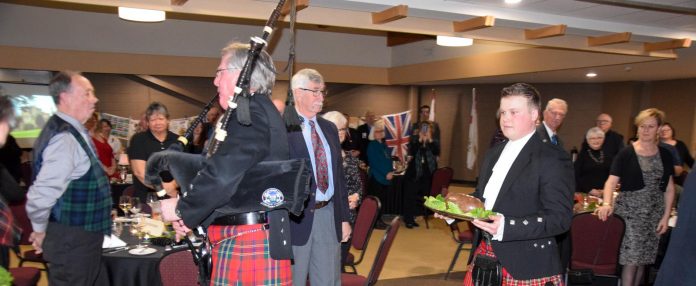DAVOS, Switzerland—Autumn Peltier, the 15-year-old Wiikwemkoong water walker and Anishinabek Nation chief water commissioner, took part in a Time Magazine panel on January 21 alongside young activists Greta Thunberg, Salvador Gómez-Colón and Natasha Mwansa at the World Economic Forum in Davos, Switzerland.
The panel, moderated by Time Magazine CEO and editor-in-chief Edward Felsenthal, allowed the young activists to share moments of struggle and triumph as they have been working on getting their messages across to the public.
“I personally don’t feel that heard from politicians, I would say, but with my local members of parliament I do feel really heard,” said Autumn, making reference to Algoma-Manitoulin MPP Mike Mantha who serves as a member of the official opposition in the Ontario legislature.
“He’s doing a lot of work to help me achieve my goals around that area. Even Carolyn Bennett (the federal minister of Crown-Indigenous relations), she’s doing a lot of stuff to help me be heard as well. But then when it comes to federal government it’s really hard to get their attention, be heard by them,” said Autumn.
A priority shift is badly needed, according to Autumn, who said world leaders are missing the issues that matter to the continued survival of the planet.
“Honestly, I would say they’re all focused on just money. We need to be more focused on the actual things going on; they’re not thinking about the impacts and things that are happening. It’s almost like they don’t even believe that climate change is real,” Autumn said.
Mr. Felsenthal asked Autumn about the time three years ago when she confronted Prime Minister Justin Trudeau about water protection issues. He inquired as to whether she felt like Mr. Trudeau listened to her arguments.
Autumn acknowledged that she felt the Canadian government was at least trying to make progress on ending boil water advisories in First Nations.
“I feel like there has been change because his Canadian government is actually working really hard towards trying to resolve the boil water advisories in First Nations communities,” said Autumn. “The only issue with that is every time one is resolved, a new one occurs, so it’s kind of continuous. But I know in Canada they are trying to make change.”
The way forward on a global scale, according to Autumn, will likely be found when more young people join the campaign to combat climate change.
“To see change, I think what we need to do is start getting more people and youth, not only from Canada but from all over the world, and empowering other kids to stand up,” she said. “What we’re doing right now is empowering them because being at the World Economic Forum we’re on a global stage and everyone’s going to be watching this. What we say right now is going to make an impact on everyone watching.”
Autumn has been a high-profile figure in the press and has received no shortage of awards, accolades and speaking engagements in the past couple of years. Although being recognized for her continued advocacy work for First Nations and clean water worldwide could be seen as a nice gesture, Autumn said those tokens of appreciation are misguided.
“I don’t want your awards. If you’re going to award me, award me with helping me find solutions. Award me with helping me make change. I feel that’s what I would want to see, is more people trying to help us with what we’re trying to achieve,” she said.
Press coverage of the work of these young activists, including the work of Autumn as has been reported in this newspaper, has been met with no shortage of vile and outraged comments by those that appear to be content with pretending the human-caused climate crisis does not exist.
Whether this is because of people who are so overwhelmed with the scope of the problem that they find it easier to make jokes and deny the problem exists, because of those who have placed their faith in fringe science that defies the overwhelming scientific evidence confirming the existence of human-made climate change or because some find joy in railing against easy targets, hateful online comments can be extremely disheartening for those without the determination of the activists on the panel.
“If you have negative things to say online to us, don’t even try and do that. It’s so wrong and we’re just trying to do good things,” said Autumn. “That’s the thing is that there’s always going to be negative people and positive people online, and we’re really just trying to maybe even change the minds of people that think negatively about the things we do.”
Ultimately, these youths have taken up the call to make desperately-needed changes to the only planet mankind has upon which to live. Autumn said it should not be up to young people to make important changes to the world but offered advice from her auntie Josephine Mandamin, the late water walker and former Anishinabek Nation chief water commissioner.
“If you had an idea or a way (forward), she’d always say ‘just do it.’ I just want to say that if you have an idea or a solution or a way you can help us, just do it,” said Autumn, offering the closing words on the panel discussion.
Autumn’s mother Stephanie Peltier, sharing her thoughts through social media, said she was proud of Autumn for speaking from the heart and speaking the truth.
Later at the World Economic Forum, Autumn spoke at more engagements and met both Jane Goodall and Al Gore. She also enjoyed some time to tour the event and take in the technological advancements and the city of Davos before returning home.





